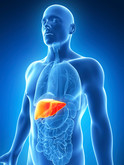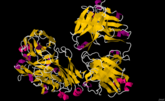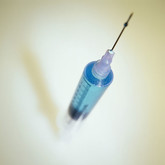Biosimilars/Research
The case for improving biosimilar regulatory frameworks worldwide
In developing countries, where the cost benefits of biosimilar drugs would have the greatest impact, the financial investment needed to develop biosimilars renders them inaccessible. The situation requires increased input from international evaluation frameworks, such as those of the World Health Organization (WHO); write Barbara Milani and Sara Gaspani of Médecins Sans Frontières, Geneva, Switzerland [1].
Improving access to HCV treatment in developing countries
Hepatitis C virus (HCV) infection affects 150–180 million people worldwide each year, killing an estimated 350,000. The considerable cost of treatment – US$ 10,000–US$20,000 per patient for a 48-week course – presents an insurmountable barrier in developing countries, where the disease burden is greatest. Barbara Milani and Sara Gaspani of Médecins Sans Frontières, Geneva, Switzerland, have collected information on biosimilars and other alternatives to the current recommended treatment, pegylated interferon alpha (in combination with ribavirin) [1]. With these findings, they hope to accelerate the search for feasible, accessible alternatives to current therapies.
Bioanalytical challenges in the development of biosimilars
Some of the topics presented at an international conference on biowaivers and biosimilars, held in the US in September 2012, were applicable to large-molecule bioanalytical methods. These included assay format, glycosylation and immunogenicity, and how differences in these components can impact the evaluation of biosimilars and their subsequent approval.
Immunogenicity testing in biosimilars
During a presentation given by Dr Kelly Colletti (Laboratory Sciences, USA) at an international conference on biowaivers and biosimilars, held in the US in September 2012, it was discussed whether one or two assays should be employed in order to measure anti-drug antibodies to both the biosimilar and reference biological in a comparative manner [1].
Analysis of carbohydrate containing biosimilars
During a presentation given by Dr Azadi Parastoo, University of Georgia, GA, USA, at the international conference on biowaivers and biosimilars, held in the US in September 2012, the types of analytical techniques that can be utilized in order to characterize differences in glycosylation for analysis of biosimilars were discussed [1].
Establishing mAb biosimilarity before reaching the clinic
Confirming the biosimilarity of monoclonal antibodies (mAbs) is fraught with challenges beyond those faced by currently approved biosimilars, warn Ebbers and co-authors at Utrecht University, The Netherlands [1]. The threat of unexpected immunogenicity has been well reported, but the problems do not start there. The first steps towards establishing the biosimilarity of an anticancer mAb, the preclinical stage, presents challenges of its own.
Challenges and opportunities for anticancer mAbs
Several best-selling monocloncal antibodies (mAbs) are due to lose patent protection; presenting regulatory authorities with a complex set of challenges as they prepare for the arrival of novel biosimilars, note Ebbers and co-authors at Utrecht University, The Netherlands [1].
Phase III QoL assessments show comparability of biosimilar infliximab
The results of phase III quality of life (QoL) assessments of a candidate biosimilar infliximab (CT-P13) have shown the comparability of the biosimilar (CT-P13) and its reference product, Johnson & Johnson’s rheumatoid arthritis blockbuster Remicade (infliximab).
Phase I study shows equivalence of biosimilar rituximab and MabThera
The results of a randomized, controlled, multicentre, two-arm, parallel-group, double-blind study of CT-P10 (rituximab) in patients with rheumatoid arthritis has shown the equivalence, with respect to pharmacokinetics, efficacy and safety, of the biosimilar (CT-P10) and its reference product, Roche’s rheumatoid arthritis blockbuster MabThera/Rituxan (rituximab).
Non-clinical and phase I clinical assessments show similarity of biosimilar rituximab
The results of non-clinical and phase I clinical assessments of a candidate biosimilar rituximab (PF-05280586) have shown similarity, with respect to in vivo, functional characteristics and pharmacokinetic and pharmacodynamic properties, of the biosimilar (PF-05280586) and its reference product, Roche’s rheumatoid arthritis blockbuster MabThera/Rituxan (rituximab).













